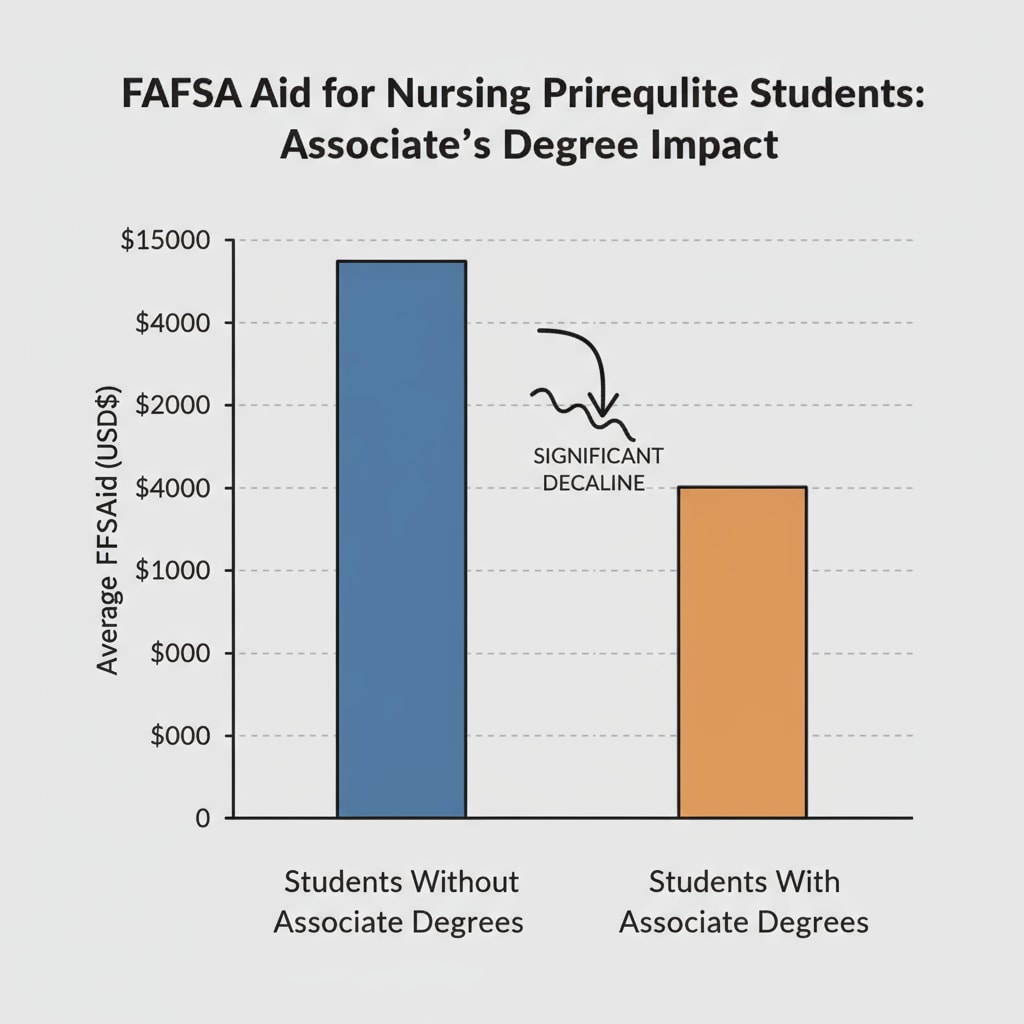For students who have already obtained an associate degree and are looking to pursue nursing prerequisite courses with the help of FAFSA (Free Application for Federal Student Aid), there are numerous difficulties standing in their way. The intersection of FAFSA, associate degrees, nursing programs, and federal aid creates a complex web of challenges that need to be addressed.

The Current FAFSA Policy Landscape
The FAFSA system is designed to provide financial assistance to students pursuing higher education. However, for those with an existing associate degree, the rules can be rather restrictive. As per the current policy, students may find themselves in a situation where they are not eligible for sufficient aid to cover the costs of nursing prerequisite courses. This is mainly because the system has certain criteria that often overlook the unique needs of these students. For example, the expected family contribution (EFC) calculation might not accurately reflect the financial situation of students who have already invested in an associate degree and now wish to further their education in nursing. Understanding FAFSA Basics on StudentAid.gov

Impact on Nursing Professional Development
The limitations in FAFSA funding for students with associate degrees pursuing nursing prerequisites have a significant impact on nursing professional development. Nursing is a field that is constantly in need of skilled professionals. However, when potential candidates face financial barriers in completing the necessary prerequisite courses, it restricts the talent pool. Many students who are passionate about nursing and have the academic ability to succeed are forced to put their dreams on hold or even abandon them altogether due to the lack of adequate federal aid. This not only affects the individual students but also has broader implications for the healthcare system, which relies on a well-trained nursing workforce. American Nurses Association Website
To address these issues, several solutions can be considered. Firstly, the FAFSA policy needs to be revised to better accommodate students with associate degrees. This could involve creating a separate category or set of criteria for them, taking into account their previous educational investments. Secondly, educational institutions and nursing programs should collaborate with the government to provide additional financial support or scholarships specifically for these students. Additionally, awareness campaigns should be launched to inform students about all available financial options, including private loans and grants that they might not be aware of.
Readability guidance: The article uses short paragraphs to clearly present ideas. Each H2 section provides a focused discussion. The passive语态 is kept to a minimum, and transition words like “however”, “for example”, and “additionally” are used to enhance the flow of the text.


